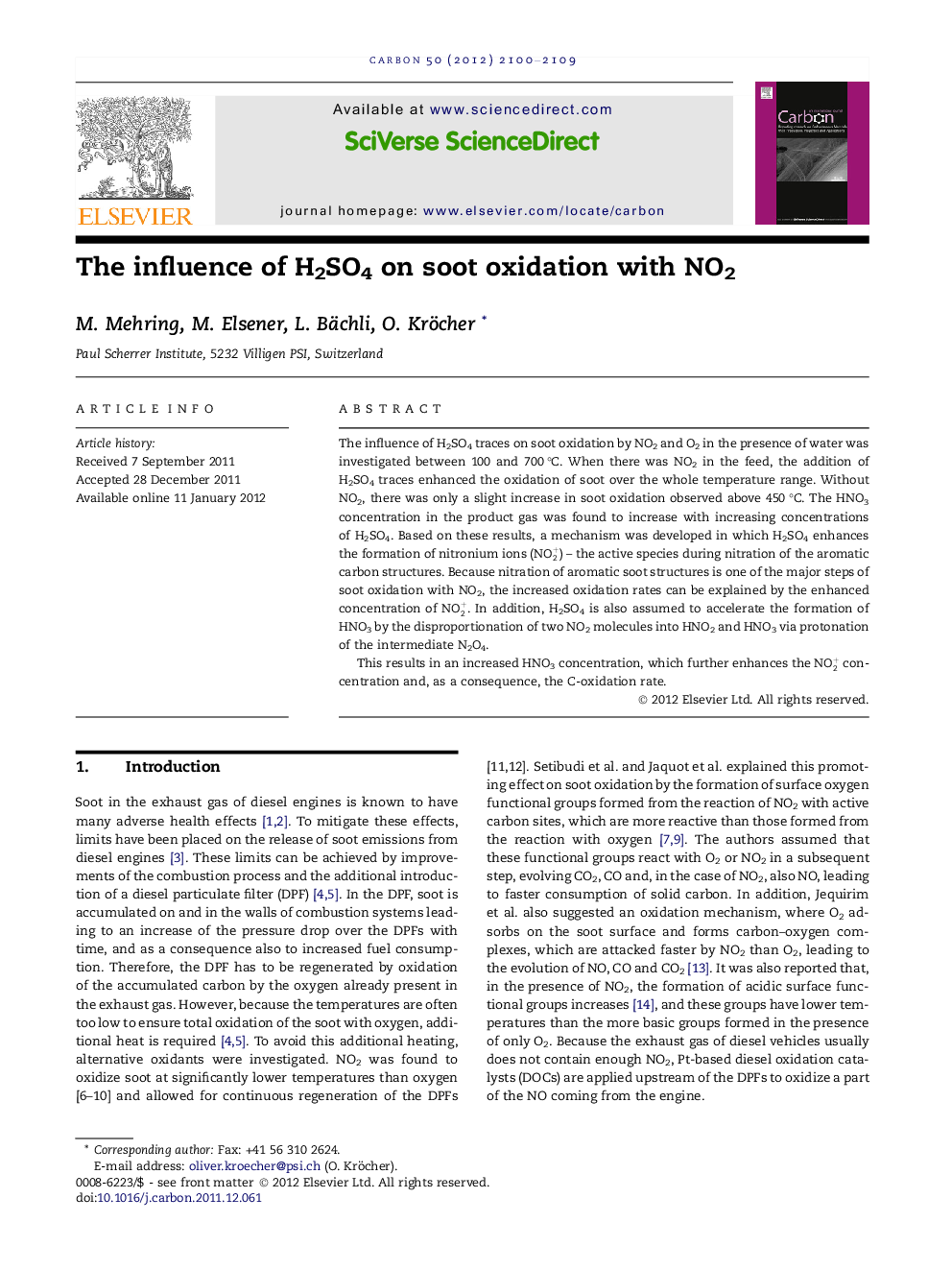| Article ID | Journal | Published Year | Pages | File Type |
|---|---|---|---|---|
| 1415164 | Carbon | 2012 | 10 Pages |
The influence of H2SO4 traces on soot oxidation by NO2 and O2 in the presence of water was investigated between 100 and 700 °C. When there was NO2 in the feed, the addition of H2SO4 traces enhanced the oxidation of soot over the whole temperature range. Without NO2, there was only a slight increase in soot oxidation observed above 450 °C. The HNO3 concentration in the product gas was found to increase with increasing concentrations of H2SO4. Based on these results, a mechanism was developed in which H2SO4 enhances the formation of nitronium ions (NO2+) – the active species during nitration of the aromatic carbon structures. Because nitration of aromatic soot structures is one of the major steps of soot oxidation with NO2, the increased oxidation rates can be explained by the enhanced concentration of NO2+. In addition, H2SO4 is also assumed to accelerate the formation of HNO3 by the disproportionation of two NO2 molecules into HNO2 and HNO3 via protonation of the intermediate N2O4.This results in an increased HNO3 concentration, which further enhances the NO2+ concentration and, as a consequence, the C-oxidation rate.
